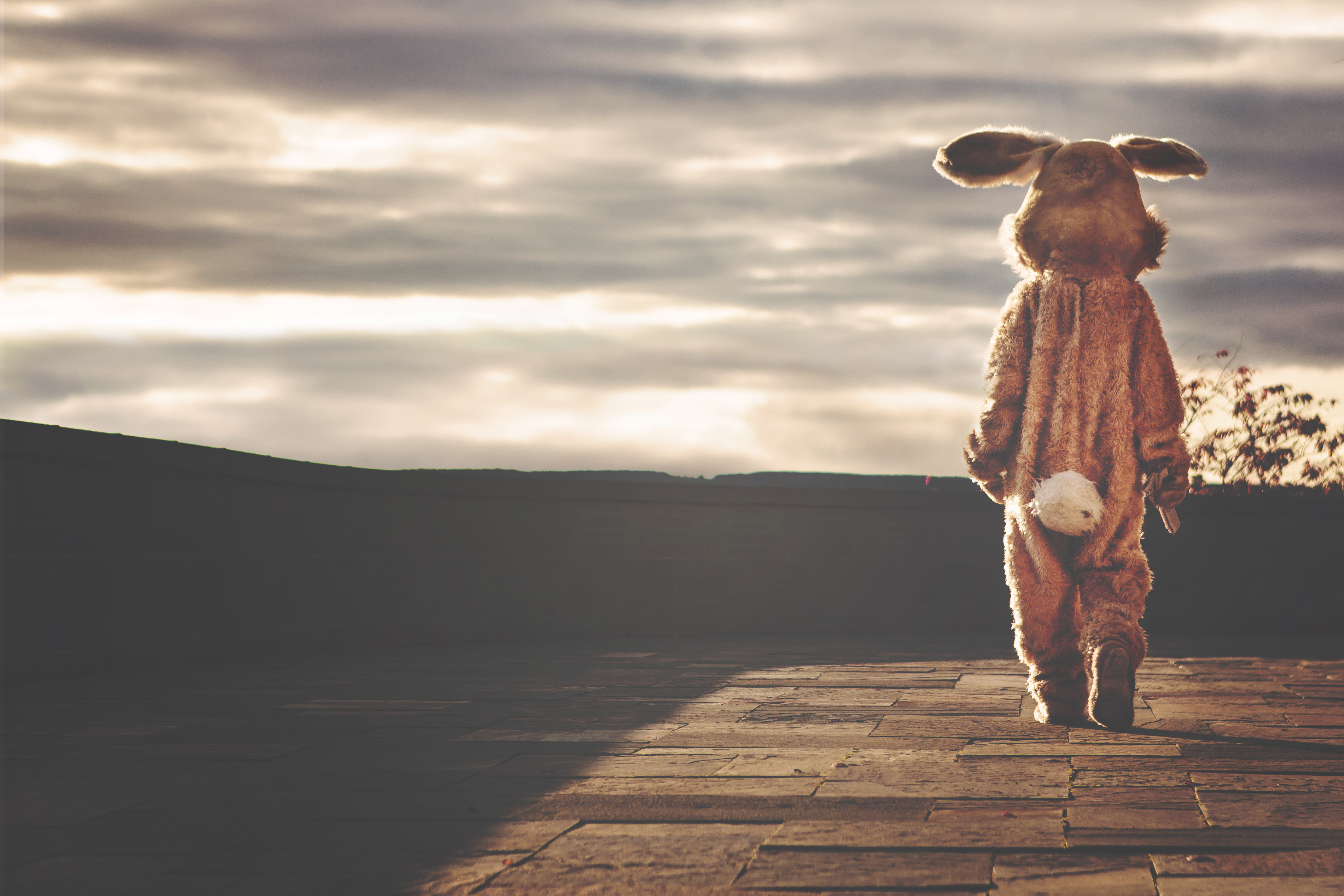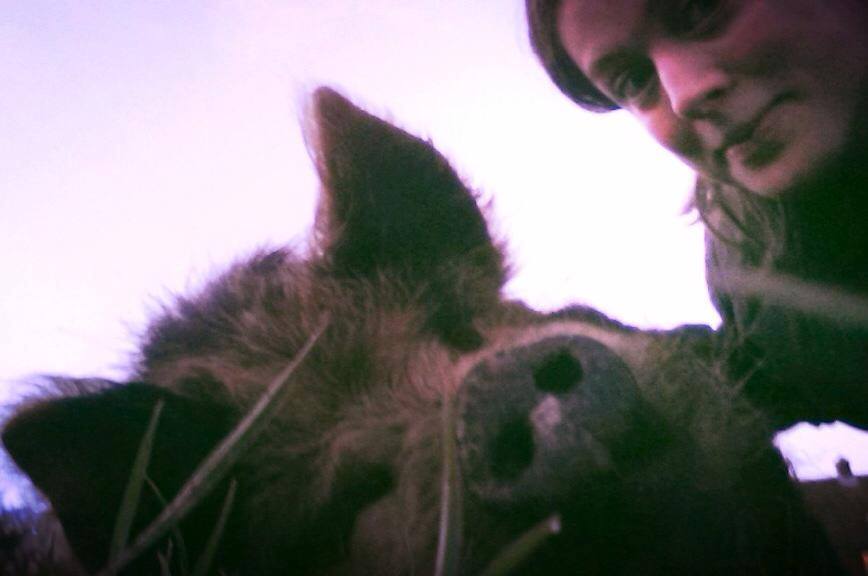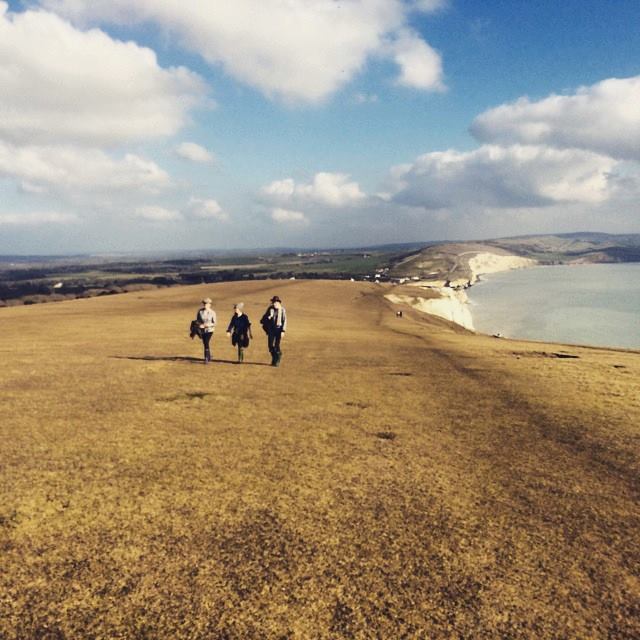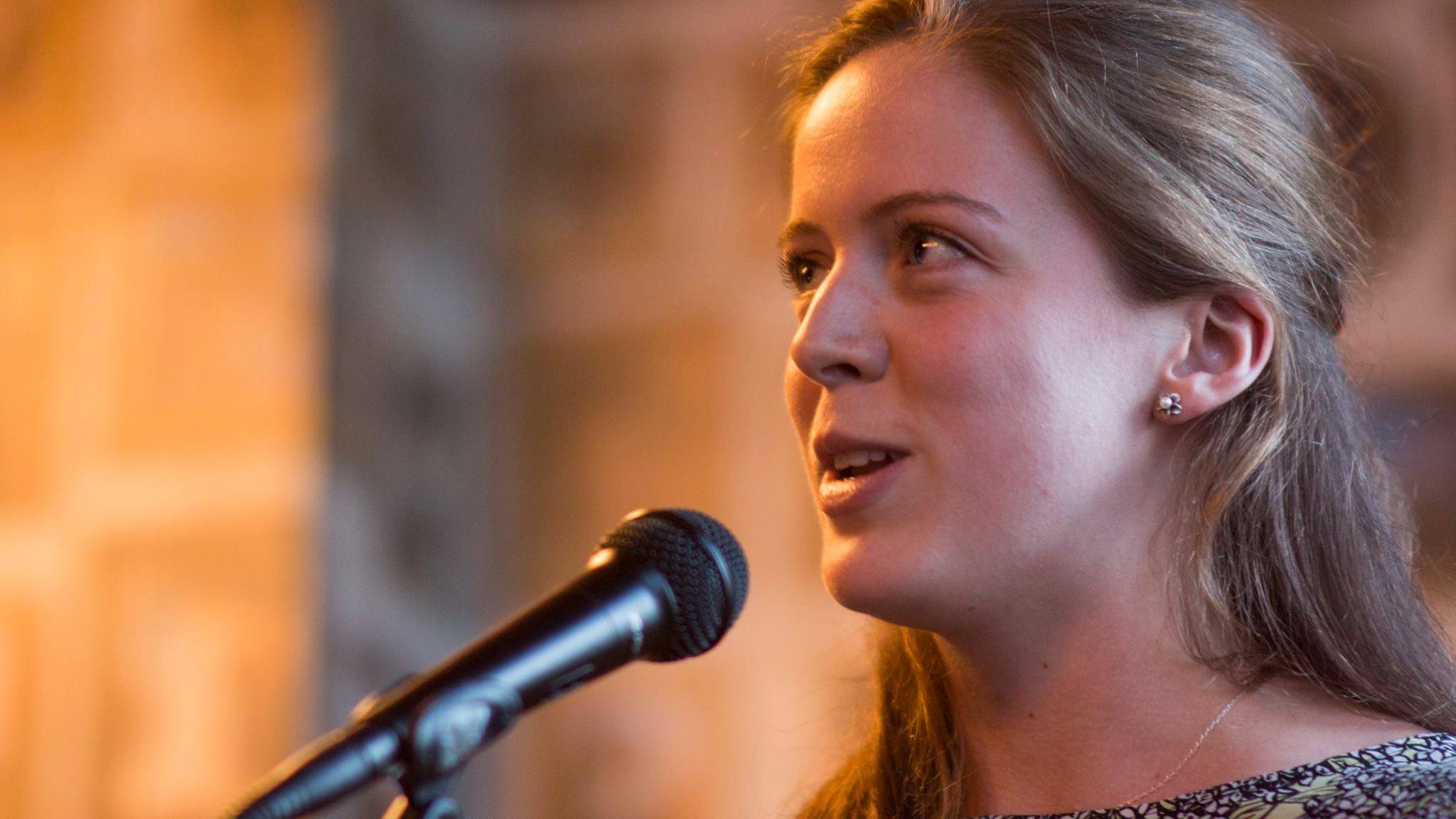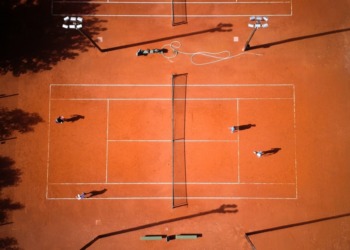Hey, that’s no way to say goodbye
Rabbit the pony got a hay husk in his eye once
and it drove him half-crazy/ near blind.
But he blinked till it passed in a tear or his bloodstream.
Good boy Rabbit. There’s a good boy.
My limbs are a mess but my work is sterling.
There’s method in my harvest gladness and moon.
This is how strong I am, stupid world. Yes sir, yes sir, one hundred baleful.
One hundred percent I will do this today, or I will not do this at all.
Before I know it, because of the twine,
my knuckles have split and roam in my skin
with the seeds that have burrowed right under there, too
and hurt like a bastard, or several.
A crossbred terrier is desperate to play –
Not now, Paddy. Paddy, not now.
There’s so much still to do whilst the sun still shines
and I’m eagle eye cherrying tomorrow.
My body is husky, not like a voice,
not like a dog, and I’m bleeding right out into nothing.
When he trundles through the trees on his crap old tractor,
the farmer shouts surprise at all I’ve done. His swear word’s
grateful/ proud/ husky, not like a dog,
or like me, and he’s crying right out into nothing
but he blinks until it passes (not now Paddy, good boy Rabbit)
and offers me slings for my fingers.
I spoke to Lily Blacksell on a fall evening at Tap-a-Keg, a small dive bar near Columbia University in Upper Manhattan. Throughout our conversation, the sound of clacking billiard balls punctuated the air. The sound recording app on my phone wouldn’t work, so Lily recorded this interview with her phone. This would not be my only blooper as a serious journalist, and her helpful gesture encapsulated the tone of our entire conversation. Lily Blacksell wants to help us understand her work. Her poems are not insular, and her dedication to performance poetry suggests a desire to reach people with language.
You describe yourself as a page and stage poet: what does that entail, and are you one more than the other?
Lily Blacksell: Yes, I really ought to decide what I mean by that. What it entails is that I always intend for my poems to work out loud. I suppose a lot of people do, but I’m very conscious of the way things sound. I also know that I’ve written poems that work much better out loud than they do on the page. Performance poetry was a big part of my life for a long time, so that tended to work in my favor, but more recently I’ve tried to be more disciplined with how things appear written down. It’s really a double-edged sword, because a lot of the time when I read a poem out loud, people say “Oh, I enjoyed that, but I’d love to see it written down,” and then other times when people see a poem written down, they say “Oh, I just feel like it has more life out loud.” I guess my poems can feel a little bit performative because I’ll use comedy in certain ways, or voice, or elements of musicality, which is perhaps what I’m getting at with page and stage.
IN THIS PHOTO: Lily Blacksell and swine companion.
So would you say you are spending more time considering “the page” now?
L.B.: I think so. Certainly my first year at Columbia was much more focused on the page, but now I’m trying to take it back stage-wards again, partly through a class I’m doing which looks at divas and performance and powerful women, (so much of what I already write about). I think I’m still determined that you can do both, but it’s not easy and I haven’t necessarily cracked it yet.
I think the line is blurring now more than ever—Mahogany L. Browne and the poem “Black Girl Magic,” is very well-received, and that has many performative qualities. What’s the performance poetry scene like in the UK?
L.B.: It’s brilliant. It’s thriving, largely through slams, but by no means exclusively through slams. Like open mic poetry nights—in the major cities in the UK you’ll be able to find those most nights of the week. There are many wonderful British poets who are managing to straddle the “Page/Stage” divide. Radio stations and TV stations [in the UK], particularly our dear BBC, seem to be paying more attention to poetry these days.
How does that duality of “Page vs. Stage” inform this poem (“Hey, that’s no way to say goodbye”), or does it factor in this poem?
L.B.: I think it does. It’s a weird poem. There’s definitely music in it, and it feels performative in that it feels a bit like an Ars Poetica (Ed: a poem about poetry, or the creation of poetry). I could almost read it as a speech, or a statement of purpose. And then there’s the fact that I borrowed the title from a song.
Inthe Photo: Lily Blacksell on the Isle of Wight
There’s a song called “Hey, That’s No Way to Say Goodbye” by Leonard Cohen (although Michael Kiwanuka has a cover of it that I prefer to the original!). And I’m making a vague joke with the word “hey”, because the poem is kind of about haymaking.
Related article: “ARTIST HABITS: CREATIVITY ON SMALL SPACES”
Is there anything from performance that you wish you could convey on the page? Timbre and pace can be evoked vocally, but there are also ways to show that on the page.
L.B.: Exactly, and I’m determined to make myself do both!
But at the same time, all of those markers—and this is suggesting my interpretation of the poem—but all of the markers are devices that you can use to convey timbre, pace, but to a certain extent they fail in a way that performance does not.
L.B.: That’s a really good point. And it’s so interesting, thinking about poetry in a workshop setting, where typically the writer has to remain completely silent once they’ve read their poem through once. Or, when a poem’s gone out into the world – in the book, on a website – it doesn’t belong to the writer anymore. It belongs to the reader. And I can’t help but feel that, as a performer, you have just an ounce more control. And that doesn’t always pay off, and it doesn’t mean people are going to get the jokes; it doesn’t mean people are going to get the references, or even like the way you’re doing the poem, but you have just a little bit more intention behind it all. And whether that’s the way you’re standing, a little half-look that you do, or the eye contact that you’re making, I think that that can drastically alter a poem. And then also, I think something that I’ve been so conscious of for the past year or so is that things do sound so different in different people’s voices, and in different people’s accents. And while I think it’s good to write poems which work in everyone’s voice, I think your personal voice is also something immensely important that should be held onto.
I’m going to break a Cardinal rule of poetry here, and I’m going to ask you what do you think the poem is about?
L.B.: For me it feels like a statement of purpose, particularly the line “This is how strong I am, stupid world.” Recently, I’ve been writing quite a lot about working hard—I’m a great believer in working hard. I realize writing about working hard isn’t the same as working hard, but it’s the way I’ve gotten started! So this poem is partly about that. The other day I remembered a high school class in which we went around the room saying something we were scared of. And you had the usual ones—“I’m afraid of heights,” or “I’m afraid of spiders,” and I said “I’m scared of being underestimated,” and silence fell. It was an odd thing to say, yes, but I think that sentiment may be in this poem. It’s also about relationships, and as the title might suggest, saying goodbye while also carrying on.
 IN THIS PHOTO: Lily Blacksell believes in hard work.
IN THIS PHOTO: Lily Blacksell believes in hard work.
In my interpretation, the title plays into this too, but I see in this poem a sense that words fail—beginning with the first three words: “Rabbit the pony.” The signifier is divorced from the signified. And then there are the words separated by slashes, as if you can choose one, or an aphasia—“not this word, or this one, but somewhere in the middle.
L.B.: Yes. Those are all things that are important to me, and I’m conscious of while I’m working (hard)—the fact that language can be so useless, and how it’s okay to get it wrong in a poem as well—in a space where things are supposed to be said precisely and perfectly, so I’m very pleased by that interpretation.
For a full mindmap behind this article with articles, videos, and documents see #poetry
And then there are these lines: “My body is husky / not like a voice, / not like a dog…” which is to me, like going to the eye doctor—and they say “One or two?” and you say “Two is a bit better.” And then it’s “Two or three?” You’re narrowing in on the word, or the semantic meaning of husky.
L.B.: Yes! And as I was saying, you have to let go of a poem because it either belongs to the audience or the reader, and so I guess I’m subconsciously or self-consciously allowing some room for interpretation, and that can lead people in all sorts of directions, to all sorts of conclusions.
 In the Photo: Lily Blacksell performing.
In the Photo: Lily Blacksell performing.
When you generated this poem, how close in your mind was this idea that words fail?
L.B.: Pretty close, it’s something I feel keenly. But I also considered that words don’t always mean what you think they do. All of my poems are littered with bad jokes and puns, I think for that very same reason.
And puns oftentimes demonstrate a sort of breakdown of language.
L.B.: They do! And this poem is an interrogation of that, in a lot of strange ways, with some animals thrown in for good measure.
Recommended reading: “A POEM BY SARA JOY MÀRQUEZ“
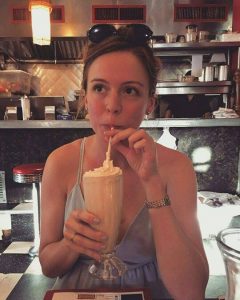 Lily Blacksell is a British writer currently based in New York, where she is working towards a poetry MFA on Columbia University’s Writing Program. She spells it Programme. Lily writes poems for the page and the stage. Her work has appeared in Rockland Lit, Lifejacket and Ink Sweat & Tears and is forthcoming in Poet’s Country, Foothill and Magma Poetry. She has written reviews and interviews for Boston Review, Sabotage and Prac Crit. Last year, she was a finalist in the Roundhouse Poetry Slam.
Lily Blacksell is a British writer currently based in New York, where she is working towards a poetry MFA on Columbia University’s Writing Program. She spells it Programme. Lily writes poems for the page and the stage. Her work has appeared in Rockland Lit, Lifejacket and Ink Sweat & Tears and is forthcoming in Poet’s Country, Foothill and Magma Poetry. She has written reviews and interviews for Boston Review, Sabotage and Prac Crit. Last year, she was a finalist in the Roundhouse Poetry Slam.


